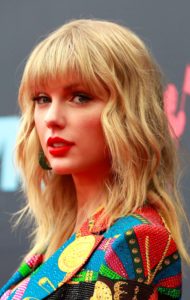
Of the five new categories recently announced to be coming to the Grammys starting in 2003, perhaps none was as warmly received as the introduction of the songwriter of the year, non-classical award — a mere 48 years after the Grammys added a producer of the year, non-classical category. With songwriters a crucial part of the industry’s lifeblood, it’s long past time that they get their very own category on Music’s Biggest Night, even beyond songwriter-awarding categories like song of the year.
But which songwriters will actually end up being recognized in the new category? Well, the Academy will be choosing from a smaller pool of eligible candidates — and far fewer of the biggest names that immediately come to mind — than you might think.
First of all, pop fans might see the introduction of a songwriter-specific award and wonder if Grammy darling singer-songwriters like Adele, Taylor Swift or Bruno Mars might end up cleaning up in the category. It’s not likely, however: The Academy’s rules for the category specify that to be eligible, “songwriters must have written a minimum of 5 songs in which they are credited ‘solely’ as a songwriter or co-writer.” (In addition to that, they may submit four extra songs for consideration in which they have additional credits as performer.)
So that means that for Taylor Swift, for instance, to even be eligible for the songwriter of the year Grammy, she’d need to have received a writing credit on five songs during that eligibility period that she didn’t also perform on — like Little Big Town’s hit “Better Man” in 2016, which she wrote but did not release herself until Red (Taylor’s Version) in 2021. And while there are dozens of Taylor Swift covers released every year, they would not count towards her total unless they were officially released covers of songs she’d written that year. (It’s also worth noting that interpolations do not count towards these minimums, so Olivia Rodrigo’s “Deja Vu” and “1 Step Forward, 3 Steps Back” — both of which credited Swift as a writer for their lifts of her songs “Cruel Summer” and “New Year’s Day,” respectively — would not have helped her qualify for the award if it had been handed out this year.)
That means that most star artists — who are rarely prolific enough to do that much outside songwriting for other artists in a given year — would not make the eligibility cutoff for this award. But it’s not just writer/performers that might be left on the outside looking in for songwriter of the year; writer/producers will also have difficulty meeting the needed minimums.
Many of the biggest behind-the-scenes writers in pop music right now — think Jack Antonoff, Dan Nigro, Louis Bell, and of course Max Martin — are also renowned as producers, most often performing both functions on the same songs. But to be eligible for songwriter of the year, they will also need to meet the five-song minimum of songs they wrote but did not receive producer (or performer) credits on. So Nigro, for one, would not be able to submit any of the eight songs he co-wrote on Rodrigo’s Sour album (which he also produced the entirety of) to meet the Grammys’ five-song minimum — though if he did write five songs in that period on which he wasn’t a credited performer or producer, he would be able to submit up to four of his Sour tracks on top of those for additional consideration.
The full text of the rules behind the songwriter of the year award reads:
This category recognizes the written excellence, profession and art of songwriting for non-performing and non-producing songwriters. This category is for songwriters whose body of work released for the first time during the current eligibility year represents artistic excellence in the area of songwriting.
Songwriters must have written a minimum of 5 songs in which they are credited “solely” as a songwriter or co-writer. Songs in which the songwriter was also credited as a Primary or Featured Artist, Producer or any other supporting role do not qualify to achieve a minimum song threshold for consideration.
Songwriters may supplement their core 5 song submission with up to 4 more songs in which the songwriter has songwriting credits as well as additional credits such as Primary or Featured Artist, Producer or any other supporting role. The maximum number of songs cannot exceed 9 entries, which is comparable to the number of submissions allowed for consideration in the Producer of the Year, Non-Classical category.
Songs from albums released in a previous year are not eligible, even if released as a single or added to a new album released during the current eligibility year. Re-released, covered, re-mixed, re-issued and historical recordings of songs are not eligible.
“It’s designed to showcase people who are professional songwriters as opposed to artists that are writing their own material,” Recording Academy CEO Harvey Mason jr. told Billboard about the new material. “We want to shine a light on the true craftspeople.” It’s a noble pursuit, certainly — but the result is a songwriter of the year category where most of the writers behind the biggest hits of the year will have to stretch to be eligible.
For example, had this category existed at last year’s Grammys, none of the four writers behind that year’s song of the year winner, Silk Sonic’s “Leave the Door Open,” would’ve likely been eligible. Bruno Mars and Anderson .Paak (Brandon Anderson) would’ve been disqualified for being credited performers on too many of their compositions, D’Mile (Dernst Emile II) wouldn’t have had enough writing credits that weren’t also producer credits, and Brody Brown (Christopher Brody Brown) wouldn’t have had enough writing credits to begin with.
(One potential loophole worth considering: The Recording Academy has said they will count cover versions towards a songwriter’s minimum if it’s a version of a song that was originally released during that eligibility period. So for instance, when Rodrigo’s “Drivers License” was released in early 2021, it immediately inspired a spate of contemporary covers, some of which were officially released on streaming platforms. Consequently, we may see writers who wouldn’t otherwise meet the five-song minimum attempt to count some of those covers among their qualifications for the award — despite being far less widely recognized than the self-performed original versions — and force the Academy to rule about whether or not the versions meet their standards for recognition.)
Who does that leave who actually will easily clear the Grammys’ qualifications for songwriter of the year, though? Well, more “pure” pop songwriters like Justin Tranter and Ali Tamposi who don’t often mix their songwriting with production work, or acclaimed film music writers like Diane Warren or Lin-Manuel Miranda. Certainly there will still be a good number of deserving names in the mix — but it’ll be a mix that excludes the majority of songwriters shaping popular music in 2022, and most of the names that Grammy viewers will expect to see recognized in the category if they don’t bother to read the category’s fine print.








